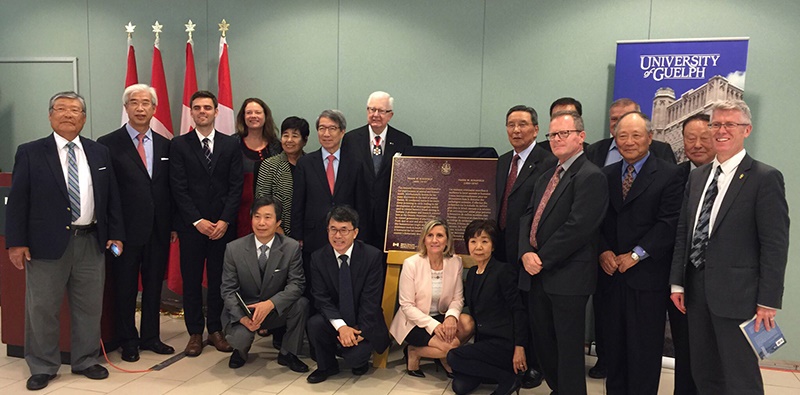A University of Guelph professor and alumnus known for his pioneering discoveries and his involvement in Korea’s independence movement was honoured today by the Canadian government.
A commemorative plaque dedicated to Francis Schofield, who died in 1970, was installed at the Ontario Veterinary College (OVC). The plaque was commissioned by the Historic Sites and Monuments Board of Canada, overseen by Parks Canada.

The event marked the centenary of Schofield’s first visit to Korea in 1916.
A Korean delegation to today’s ceremony included Chung Un-chan, former prime minister of Korea and a Schofield protégé, as well as a former president and current professors from Seoul National University. Also on hand were OVC and U of G officials.
“Frank Schofield is an example of U of G’s international reach, engagement with the world and making a difference,” said Malcolm Campbell, vice-president (research).
“His legacy lives on here at Guelph through awards and scholarships and an annual lecture – and now this memorial.”
Schofield graduated from OVC in 1910 and was a member of its faculty from 1921 to 1955. His research helped explain and ultimately treat numerous animal ailments.
His identification of mouldy sweet clover as the cause of a bleeding disease in sheep and cattle helped lead to the discovery of vitamin K inhibitors now used worldwide to control blood clotting.
In 1916, Schofield left OVC to teach bacteriology in Korea, which had earlier been annexed by Japan. He documented mass jailing, torture and deaths during the Korean sovereignty struggle.
After retiring from OVC in 1955, he returned to Seoul National University and joined a movement that brought down President Syngman Rhee in 1960.
After his death in 1970, Schofield was buried in the patriot’s section of the national cemetery; he is the only non-Korean buried there.